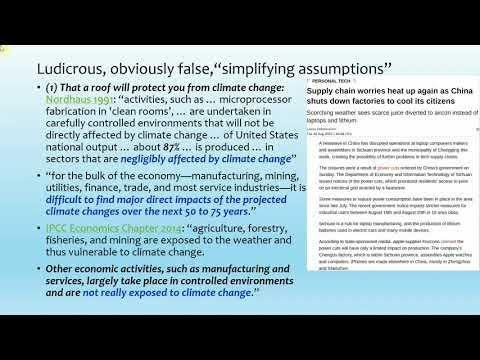
Neoclassical economists ignore energy in their economic models.
Energy is the very foundation of life and the global economy. It is unique compared to all other economic or financial entities because it is non-substitutable. You either have it or do without it. If you must do without it, your standard of living will decline by at least the proportion of forgone energy. This is why energy prices are so inelastic.
Economics and finance want to wrap themselves in the cloak of science and require highly restrictive and unrealistic premises in order to make their mathematics appear rigorous. Unfortunately, psychology is the very foundation of finance and economics, even though the practitioners will not admit it. If you doubt this then why do economists and finance professionals refer to “animal spirits”, and the “risk premium”. Both of these factors, which absolutely drive the economy and financial decisions are at their core psychological. Economic and financial models are recursive in that they will always fold back upon their own psychological assumptions.
With this travesty in mind, a few years ago I embarked upon a PhD in a discipline I founded called Financial Thermodynamics. It was explicitly the understanding of economic and financial systems where there are absolute conserved entities such as energy in the decision matrix and considered the economy as a dynamic non-linear system rather than the standard neoclassical equilibrium. That brings me back to Dr. Steve Keen.
I mentioned Dr. Keen in an earlier post, where I introduced you to his system dynamics modeling environment called Minsky (a simulation software that I occasionally employ). Over this past weekend, I came across a seminar given by Dr. Keen on the implications of the lack of energy in neoclassical economics and how to incorporate energy in economic and production models. I recommend investing an hour. You can watch the talk at the following link: https://youtu.be/EW35zuRpOnQ?si=QkR5EDbaf8MacKIV

If you think I am being too harsh, I ask you to consider all of the models regarding the energy transition. They talk only about energy and investments in energy. They do not incorporate the rest of the economy and most importantly ignore the impact on standard of living and civilization. Lastly, look at macro economic models, and you will find that energy is either ignored or it is a plug to make everything else work.
On a somewhat upbeat note. There is a branch of economics that explicitly takes psychology into account (other than the Austrian School of Economics). It is called Behavioral Economics. My favorite practitioner of this is Rory Sutherland. Look him up on YouTube. He is brilliant and always entertaining. Here is a link to one of my favorites: https://www.youtube.com/watch?v=–CjFS0owMM
